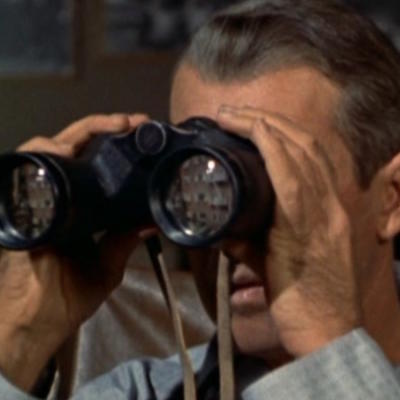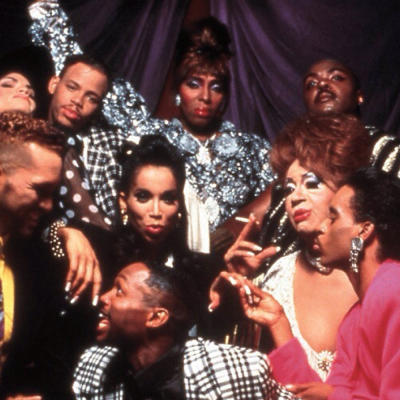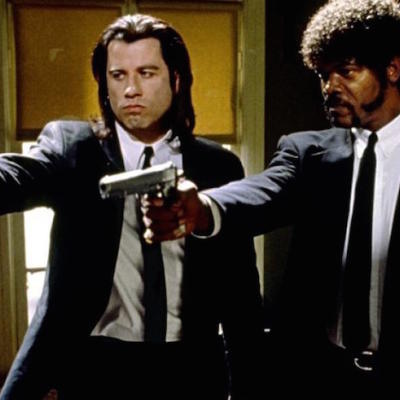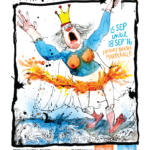Cult director John Waters, thanks to his campy, rather tasteless, and wickedly dumb movies, is known as the "King of Bad Taste" and the "Pope of Trash." His subversive and fiercely underground films have proven hugely influential on subterranean strains of cinema. Waters' 1970 film Multiple Maniacs is closing this year's Sydney Underground Film Festival (running 15th to 18th September at Marrickville's Factory Theatre), marking the festival's tenth year bringing the most weird and wonderful cinema to our screens. To celebrate the milestone, we're taking a look at five of the most essential and disgusting films by the man who's shown us that anyone with a video camera and an idea can make cinema for the ages.
Multiple Maniacs (1970)
Drag legend Divine was John Waters' muse from the beginning, and appears in all but one of the films listed here. In Multiple Maniacs, Divine plays Lady Divine, who runs The Cavalcade of Perversion, an exhibit of disgusting acts that always ends with a finale of the guests being robbed at gunpoint. Lady Divine, however, becomes bored and decides to murder the guests and well as rob them - and things just get stranger from there. In less than an hour-and-a-half, Multiple Maniacs contains prostitution, murder, lesbianism, extreme sacrilege, sexual violence, and a giant lobster, sometimes in the same scene. From here, John Waters' cult grew.
Pink Flamingos (1972)
Pink Flamingos is frequently pointed to as John Waters' greatest work - the ultimate example of his unique and influential vision of America. Named for the cheap plastic ornaments on the lawn of the trailer occupied by Divine (who goes by the name Babs), her egg-loving mother Edie, her son Crackers and her friend Cotton, Pink Flamingos is at once both regressively kitsch and revolutionarily transgressive. It finds Babs competing with perverted criminal couple the Marbles for the title of filthiest person alive, and gradually builds up in outrageousness and profanity to reach a surreal and bizarrely pointed climax that makes this the classic it is.
Polyester (1981)
Screenings of Polyester featured Odorama, a gimmick through which movie-goers receiving a special scratch-and-sniff card that would correlate with certain scenes in the movie. Waters' reputation should give you an idea of what kind of olfactory delights the card contained. In Polyester, Divine plays Francine Fishpaw, a suburban housewife whose husband owns an X-rated theatre, and whose life is falling apart; her children Lu-Lu and Dexter are delinquents (the latter having a taste for sniffing glue), and her mother is callous and overbearing. This strange and no-holds-barred satire of the suburban middle class has been a recurring theme of John Waters' films since.
Hairspray (1988)
Best known for launching the career of Ricki Lake (who became a Waters regular), as well as the dire musical remake, the original Hairspray is surprisingly edgy, and one of Waters' most complete films. Set in Baltimore in 1962, the film follows plump teenager Tracy Turnblad (Lake) wants to be a dancer on a local TV show, and also finds herself fighting against racial segregation. With cast members including Blondie's Debbie Harry, Sonny Bono, Jerry Stiller and (of course) Divine, Hairspray was a big swing for the mainstream from underground hero Waters, but still lost not of his campy spark.
Serial Mom (1994)
It's this absolutely savage satire, Kathleen Turner plays a protective suburban mother who loves making vulgar prank phone calls to neighbours who annoy her, and may have some homicidal tendencies. While this is by far one of John Waters' most mainstream films, it still pulls very few punches in skewering the trials and demands of motherhood that drive Beverly Sutphin (Turner) to murder over some pretty mundane trespasses. More than anything, Serial Mom is relentlessly hilarious - an extreme caricature that draws attention to the most ridiculous facets of everyday life.





